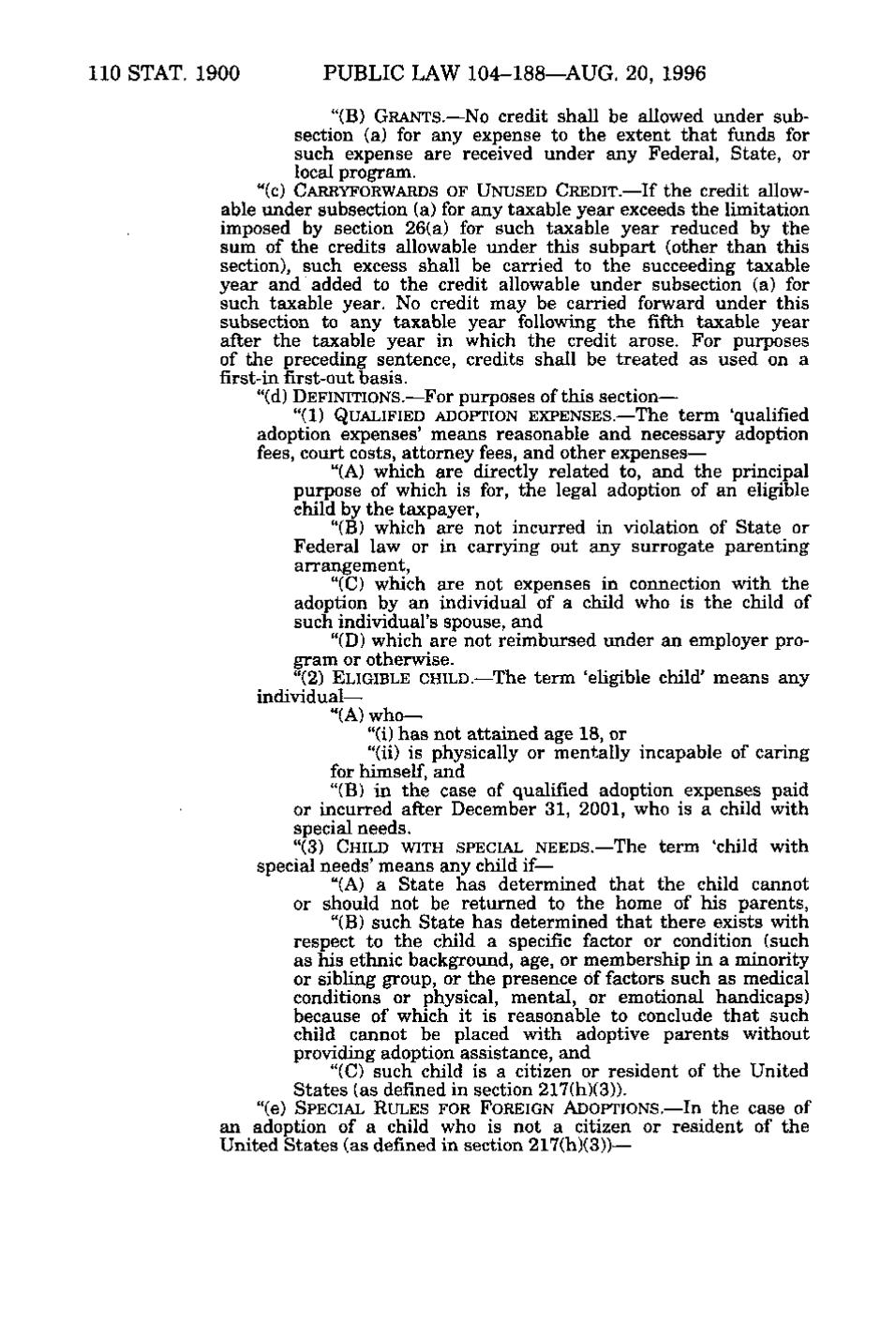110 STAT. 1900 PUBLIC LAW 104-188—AUG. 20, 1996 "(B) GRANTS.—No credit shall be allowed under subsection (a) for any expense to the extent that funds for such expense are received under any Federal, State, or local program. "(c) CARRYFORWARDS OF UNUSED CREDIT.— If the credit allowable under subsection (a) for any taxable year exceeds the limitation imposed by section 26(a) for such taxable year reduced by the sum of the credits allowable under this subpart (other than this section), such excess shall be carried to the succeeding taxable year and added to the credit allowable under subsection (a) for such taxable year. No credit may be carried forward under this subsection to any taxable year following the fifth taxable year after the taxable year in which the credit arose. For purposes of the preceding sentence, credits shall be treated as used on a first-in first-out basis. "(d) DEFINITIONS. —For purposes of this section— "(1) QUALIFIED ADOPTION EXPENSES.— The term 'qualified adoption expenses' means reasonable and necessary adoption fees, court costs, attorney fees, and other expenses— "(A) which are directly related to, and the principal purpose of which is for, the legal adoption of an eligible child by the taxpayer, "(B) which are not incurred in violation of State or Federal law or in carrying out any surrogate parenting arrangement, "(C) which are not expenses in connection with the adoption by an individual of a child who is the child of such individual's spouse, and "(D) which are not reimbursed under an employer program or otherwise. "(2) ELIGIBLE CHILD.— The term 'eligible child' means any individual— "(A) who— "(i) has not attained age 18, or "(ii) is physically or mentally incapable of caring for himself, and "(B) in the case of qualified adoption expenses paid or incurred after December 31, 2001, who is a child with special needs. "(3) CHILD WITH SPECIAL NEEDS.— The term 'child with special needs' means any child if— "(A) a State has determined that the child cannot or should not be returned to the home of his parents, "(B) such State has determined that there exists with respect to the child a specific factor or condition (such as his ethnic background, age, or membership in a minority or sibling group, or the presence of factors such as medical conditions or physical, mental, or emotional handicaps) because of which it is reasonable to conclude that such child cannot be placed with adoptive parents without providing adoption assistance, and "(C) such child is a citizen or resident of the United States (as defined in section 217(h)(3)). "(e) SPECIAL RULES FOR FOREIGN ADOPTIONS.—In the case of an adoption of a child who is not a citizen or resident of the United States (as defined in section 217(h)(3))—
�
